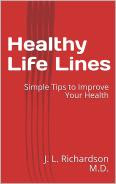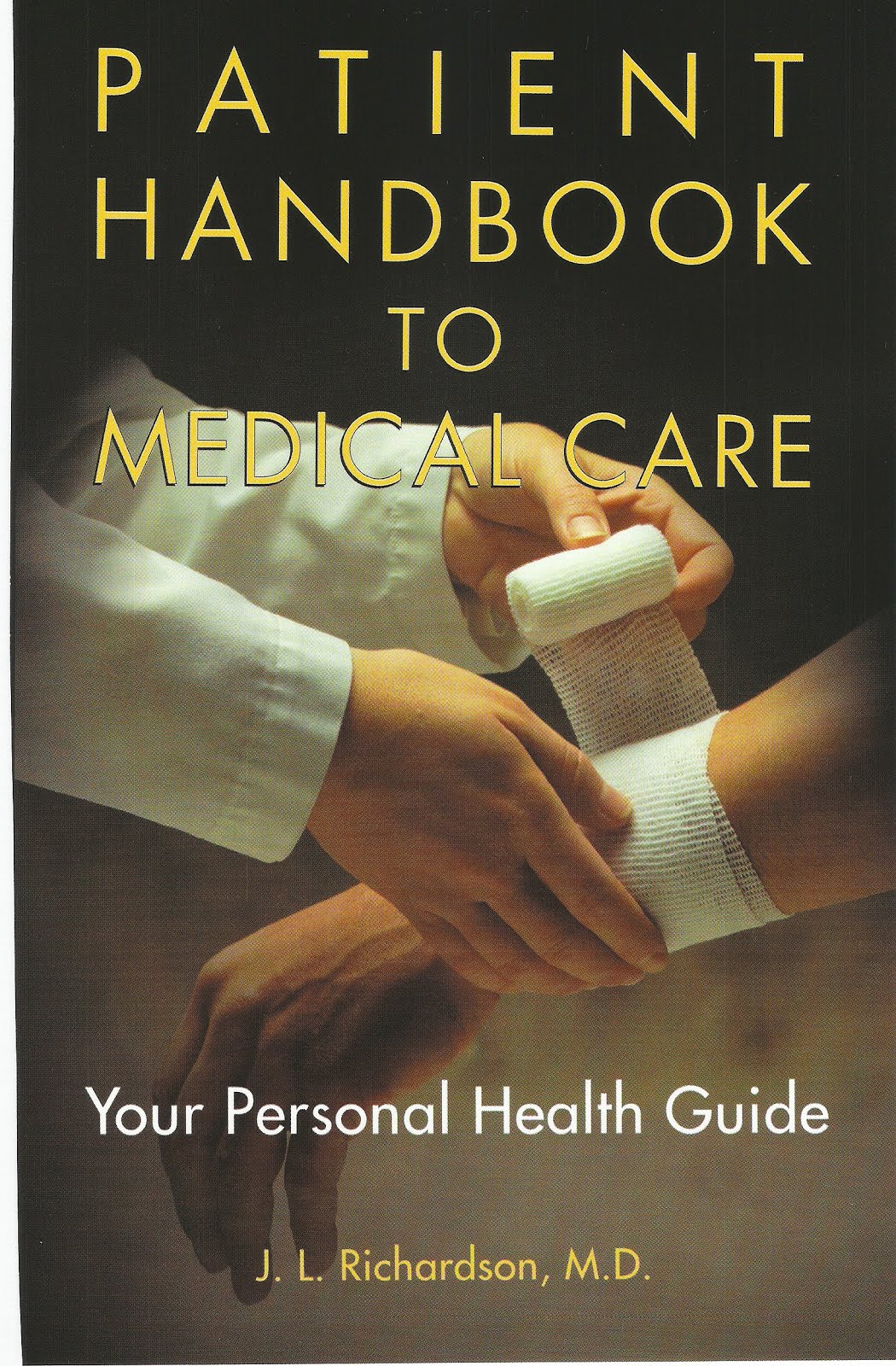viernes, 30 de julio de 2010
What You Would Like to Hear From Your Doctor Parody
Q: I've heard that cardiovascular exercise can prolong life; is this true?
A: Your heart is only good for so many beats, and that's it.. Don't waste them on exercise. Everything wears out eventually. Speeding up your heart will not make you live longer; that's like saying you can extend the life of your car by driving it faster. Want to live longer? Take a nap.
Q: Should I cut down on meat and eat more fruits and vegetables?
A: You must grasp logistical efficiencies. What does a cow eat? Hay and corn. And what are these? Vegetables. So a steak is nothing more than an efficient mechanism of delivering vegetables to your system Need grain? Eat chicken. Beef is also a good source of field grass (green leafy vegetable). And a pork chop can give you 100% of your recommended daily allowance of vegetable products.
Q:Should I reduce my alcohol intake?
A: No, not at all.. Wine is made from fruit.
Brandy is distilled wine, that means they take the water out of the fruity bit so you get even more of the goodness that way. Beer is also made out of grain.
Bottoms up!
Q:How can I calculate my body/fat ratio?
A: Well, if you have a body and you have fat, your ratio is one to one. If you have two bodies your ratio is two to one, etc.
Q:What are some of the advantages of participating in a regular exercise program?
A: Can't think of a single one, sorry. My philosophy is : No Pain..Good!
Q:Aren't fried foods bad for you?
A: YOU'RE NOT LISTENING!!!
.... Foods are fried these days in vegetable oil. In fact, they're permeated in it. How could getting more vegetables be bad for you?
Q: Will sit-ups help prevent me from getting a little soft around the middle?
A: Definitely not! When you exercise a muscle, it gets bigger. You should only be doing sit-ups if you want a bigger stomach.
Q: Is chocolate bad for me?
A: Are you crazy?
HELLO
Cocoa beans! Another vegetable!!! It's the best feel-good food around!
Q: Is swimming good for your figure?
A: If swimming is good for your figure, explain whales to me.
Q: Is getting in-shape important for my lifestyle?
A: Hey! 'Round' is a shape!
Well, I hope this has cleared up any misconceptions you may have had about food and diets. And remember:
'Life should NOT be a journey to the grave with the intention of arriving safely in an attractive and well preserved body, but rather to skid in sideways - Chardonnay in one hand - chocolate in the other - body thoroughly used up, totally worn out and screaming 'WOO HOO, What a Ride' AND....
For those of you who watch what you eat , here's the final word on nutrition and health. It's a relief to know the truth after all those conflicting nutritional studies.
1. The Japanese eat very little fat and suffer fewer heart attacks than Americans.
2. The Mexicans eat a lot of fat and suffer fewer heart attacks than Americans.
3. The Chinese drink very little red wine and suffer fewer heart attacks than Americans.
4. The Italians drink a lot of red wine and suffer fewer heart attacks than Americans.
5. The Germans drink a lot of beers and eat lots of sausages and fats and suffer fewer heart attacks than Americans.
CONCLUSION:
Eat and drink what you like. Speaking English is apparently what kills you.
miércoles, 28 de julio de 2010
Patient Handbook to Medical Care: Introduction
The goal of this book is to inform and educate patients about medical care. The book is written in an order that corresponds with the basic steps of medical care. The medical records kept by your doctor are the cornerstone of keeping track of everything pertaining to your health. This is one reason why patients should also get copies of their medical records from their doctors. In addition, I suggest that patients keep their own medical records in the form of a diary. Chapter 1 discusses keeping a medical diary and obtaining medical records from your doctors. Chapter 2
outlines what a proper physical exam should include. Preventive medicine guidelines are presented in Chapter 3. Chapter 4 discusses medical tests and what they mean. Chapter 5 describes physician specialists and when they may be necessary. The final chapter discusses types of health insurance and the quality of medical care.
It is very important for patients to learn as much as possible about wellness, disease prevention, and disease management for themselves. In our society we are accustomed to taking a doctor’s word on the state of our medical condition and treatment whether or not we understand it and either without asking any questions or without getting adequate answers to the questions we might pose. Today that might not be a healthy situation. It is necessary to be informed to get the most from your health plan and to get the best medical care from the medical resources available in the healthcare system.
By reading this book, you will find out how to take charge of your most important asset — you. This book is written to inform patients about the facts. It is by no means a substitute for your personal physician’s care and advice or for that of
any of your healthcare providers. Instead, it is a supplement. Use it in good health!
jueves, 22 de julio de 2010
Healthy Recipe: Blueberry Batter Cake
Use 11 X 8 inch pan for 6 to 8 servings.
Ingredients:
- 2 cups fresh or frozen blueberries
- 3/4 cup sugar or sugar substitute
- 1 cup flour
- 3 tbsp. butter
- 1/2 cup milk
- 1 tbsp. cornstarch
- 1 cup boiling water
Butter baking dish. Sprinkle blueberries over bottom. In bowl combine sugar, flour, and butter. Add the milk. Mix until blended. Spread the mixture over the blueberries evenly. Sprinkle cornstarch over top. Pour boiling water over the batter. Bake at 350 degrees for 45 - 60 minutes. Serve warm with whip cream.
Variant---Substitute other fruit like strawberries or rhubarb for blackberries.
martes, 20 de julio de 2010
Doctors & Specialists
After completion of undergraduate and medical school in the United States (which usually takes from six to eight years), the physician enters an internship (first professional year) followed by a residency program (two years or more) at an accredited university program in the specialty chosen. The choice of specialty determines how long the doctor is in residency training. Family practitioners and general osteopathic doctors must complete three years of medical training in all areas of medicine. D.O.’s receive additional training in osteopathic manipulative medicine (OMT), which adds a holistic approach. Surgeons have three years of general surgery, including some general medicine. General internists train for three years. If a doctor chooses to specialize further, in a sub-specialty, there may be an additional two years or more of training.
Once training is complete, the doctor may take a test to become certified in the chosen specialty. This is an indication that the doctor has excelled in a particular field and is ready to provide the best, most up-to-date medical care. The doctor must possess a license to practice medicine for the state(s) in which she or he practices. This comes from the state licensing board, which also monitors physician conduct and competence. Doctors who do not follow the law are sanctioned by this board. The mission of the board of medicine is to protect the patient.
Patients are able to contact the state boards to determine if doctors are licensed and if any disciplinary action has been taken against the physician for wrongdoing of any kind. In addition to providing information about physicians, the state boards handle patient complaints about doctors. This can lead to hearings where doctors are “tried” as in court and may lead to discipline and loss of license. The public information collected by state boards can be found on some state health agency websites.
Choosing your PCP and specialists is crucial to your health care. Word of mouth is the best and most common way good doctors are found. The internet is also a great resource.
Best health!
viernes, 2 de julio de 2010
Your Health & Medical History
- How long has this been going on?
- What have you done for it?
- Have you had it before?
- Where does it bother you?
- How often does it occur?
- What makes it better or worse?
- Are there any other symptoms?
You will be asked about how the other parts of the body are working, such as your eyes, ears, heart, breathing, and so on. This is called the “review of systems” (ROS). If there are any problems not related to your main problem, now is the time to let the doctor know.
This will be followed by your past medical history (PMH), which includes:
- Diseases you have (high blood pressure, sugar diabetes, arthritis, cancer, depression,
etc.), or have had that are better or gone (including childhood diseases such as
measles, mumps, and inherited disease) - Operations and times you were in the hospital (including accidents)
- Medication, including prescription, over-the counter (don’t forget about vitamins),
natural (garlic, aloe), and herbal - Allergies and reactions to anything and what it did to you (for example: breaking out in a
rash, swelling, itching, upset stomach, etc.) - Smoking, alcohol, drug use (how much,
how often) - Shots (childhood, flu, last tetanus, etc.)
- Sexual (active, using protection, number of partners, diseases)—in females this will also
include menstrual period, pregnancy, last mammogram, and Pap test - Family history (conditions that run in family
such as cancer, high blood pressure, etc.) - Social history—your job or jobs; family; marital status; living arrangement (house,
apartment, alone, etc.); transportation (drive self, public transport, walk); ambulation
(use walker, wheelchair); disability (deaf, blind, amputee, etc.) Religion, ethnic customs, and traditions
If there is anything left out or that you feel the doctor should know, now is the time to speak up. It is sometimes hard to get someone’s full attention, so take advantage of it while you have it. Some doctors’ offices will have you fill out forms asking the above questions or will ask you the questions and fill out the form for you. This is not a substitute for the doctor’s personalinterview and questions.
Writing or typing this information is a sure way to keep all of your PMH. Make a copy for your doctor. While talking you both can refer to this vital source of health information. This is part of your medical record.
Best health!
Use this handy form to get you started http://bit.ly/bEvHk6


